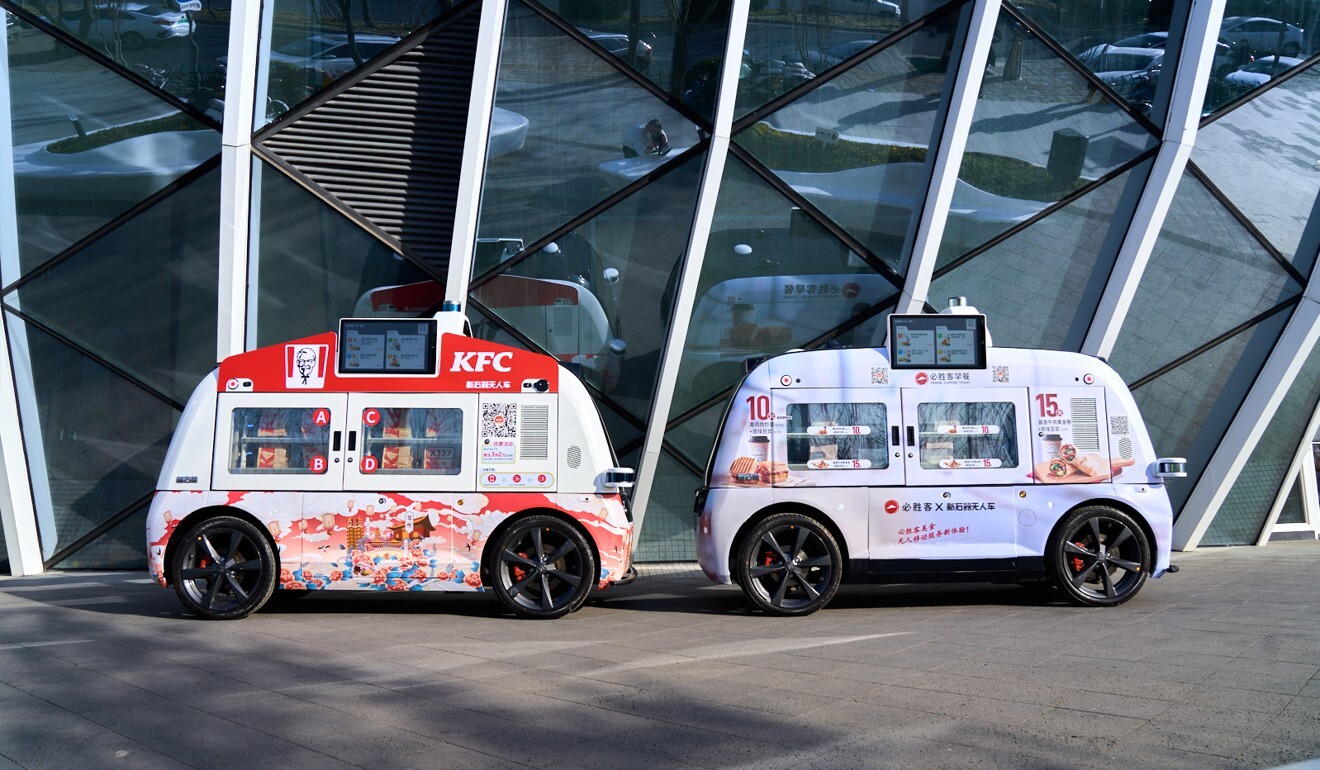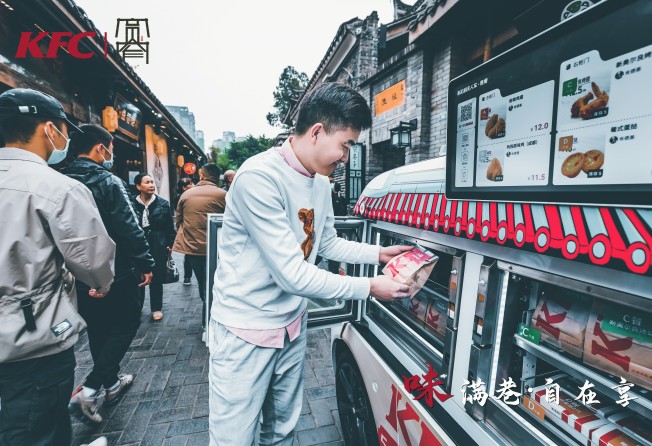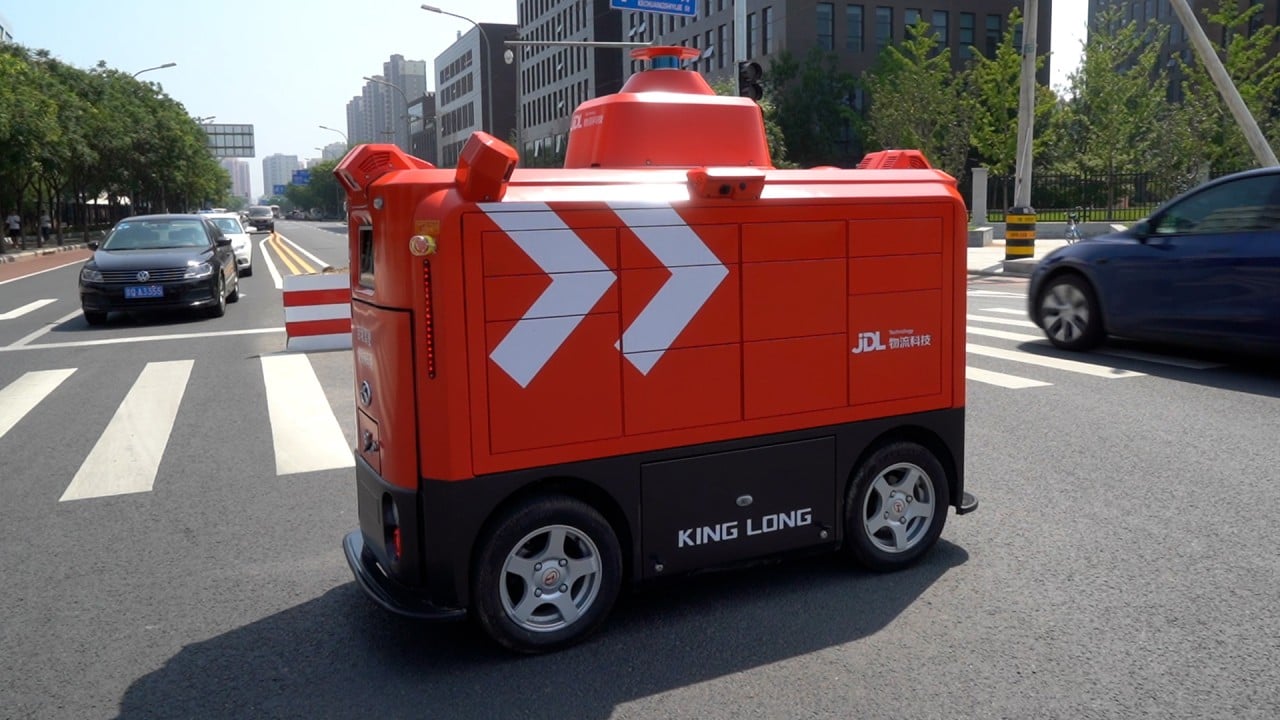
Masayoshi Son’s SoftBank invests in Chinese driverless delivery van start-up Neolix
- SoftBank Ventures Asia and CICC Capital lead multimillion-dollar investment round in robo-van maker Neolix Technologies
- China’s US$46.3-billion ‘last mile’ delivery market has attracted tech giants Meituan and JD.com

SoftBank Group has become the latest investor in Chinese robo-van maker Neolix Technologies, as the Japanese venture capital firm looks for winners in mainland China’s tech start-up space.
SoftBank Ventures Asia, the early-stage venture branch of SoftBank, joined CICC Capital in the multimillion dollar series B round, Neolix said on Wednesday.
Venture capital firms Yunqi Capital and Glory Ventures also took part in the fundraising round.
“With the Neolix team’s outstanding skills in innovation, technology, and independent development, we are confident of their ability to expand into more business and social sectors as well as across global markets,” Likun Liu, principal of SoftBank Ventures Asia, said in a statement announcing the investment.

The investment by SoftBank, one of the largest global investors in China’s tech industry, comes less than a week after founder and CEO Masayoshi Son said that he might take a cautious approach in the company’s China investments.
Analysts said the deal’s announcement could be seen as SoftBank’s effort to soothe investors’ and start-ups’ nerves, signalling that it does not plan to abandon China and will continue to invest in the nation’s start-ups.
The SoftBank investment “allows Neolix to enter SoftBank’s ecosystem, and the opportunity to share resources with other high-quality companies globally and the chance to cooperate with them,” said Yu Enyuan, founder and CEO of Neolix.
The Beijing-based developer of self-driving delivery vehicles was among the earliest Chinese start-ups that aimed to monetise the “last mile” delivery market which, according to private equity firm Estar Capital, is worth 300 billion yuan (US$46.3 billion).
Neolix, which was established in 2018, said it has delivered and deployed almost 1,000 autonomous vehicles in more than 30 cities across nine countries globally. Some retail and food chains, such as Pizza Hut and KFC, use its vehicles for delivery.
Last year, the company bought Li Auto’s mini new-energy vehicle production arm with an eye on scaling up production of its self-driving vans. The Chinese EV maker is Neolix’s second largest shareholder and was among a group of investors that invested more than 200 million yuan in the company in 2018 and 2020.
Neolix faces competition from Chinese rivals as companies look to reduce labour costs in the country which have risen rapidly in recent years, while an ageing population propels enterprises to think ahead of a possible shortage in delivery workers amid a slump in birth rates.

02:57
Chinese smart van system provides seamless automated delivery service
Meituan, the nation’s biggest food delivery firm, and e-commerce giant JD.com are also looking to speed up their delivery services. The three firms in May received the first batch of on-road licences in the sector, which allows them to test their vehicles in the Beijing Economic-Technological Development Area.
Estar Capital, which has invested in Chinese start-up JIMU Intelligent, a developer of autonomous driving technology, predicted that large-scale commercial applications of autonomous delivery vehicles would start in 2023.
“The business model of autonomous delivery has preliminarily formed, and the technology … is entering the eve of batch-scale commercial application,” it said in a report in June.